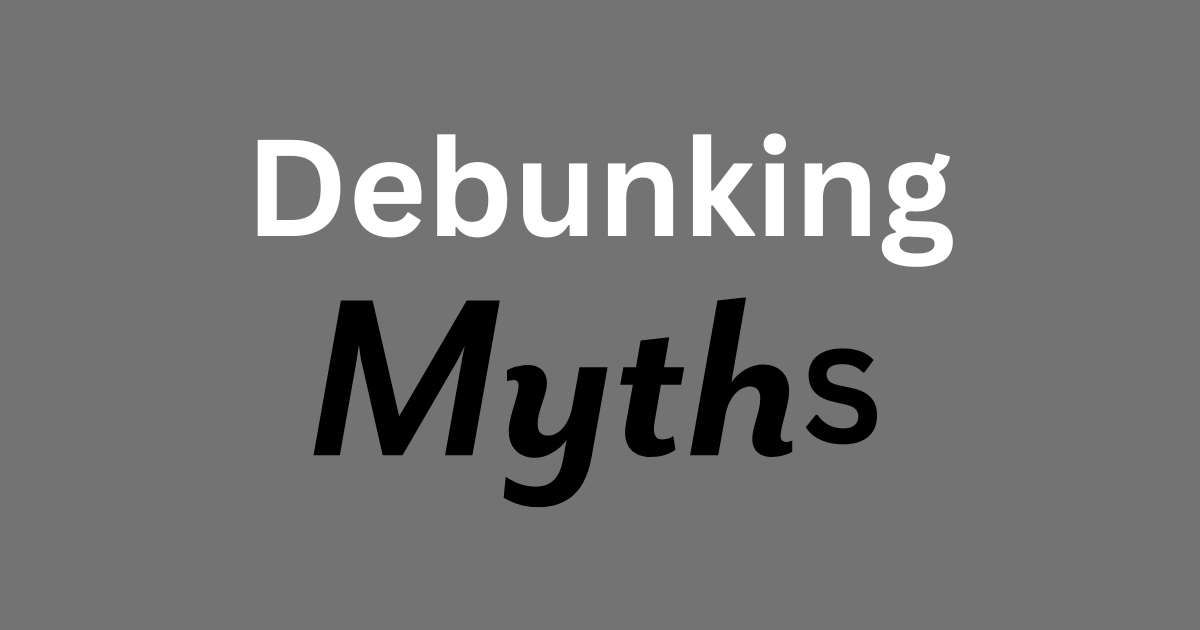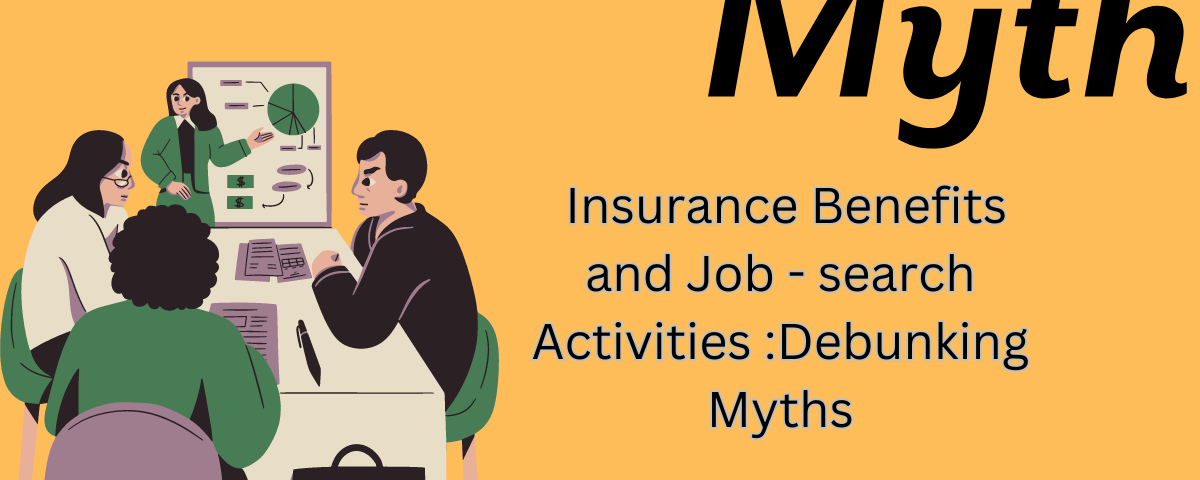
Combatting Illegal Immigration: Colonel Strategies for District 25
February 9, 2024
Colonel Vincent D. Crabb’s Strategy: Enhancing Resource Allocation in District 25
February 12, 2024I. Introduction
Insurance Benefits and Job – search Activities: Debunking Myths

Unique FAQs
- Can I receive unemployment benefits if I quit my job?
- Generally, unemployment benefits are available to individuals who lose their jobs through no fault of their own, such as layoffs or company closures. However, eligibility may vary depending on individual circumstances and jurisdictional regulations.
- How long can I receive unemployment benefits?
- The duration of unemployment benefits varies depending on factors such as state regulations, previous employment history, and the availability of work. Typically, benefits are available for a limited period, often ranging from 12 to 26 weeks.
- Do unemployment benefits cover all living expenses?
- Unemployment benefits are designed to provide temporary financial assistance to cover basic living expenses, such as housing, food, and utilities. However, the amount received may not fully replace previous income and may require individuals to budget wisely.
- Can I receive unemployment benefits if I am self-employed?
- Eligibility for unemployment benefits for self-employed individuals, gig workers, and freelancers varies by jurisdiction and may depend on factors such as previous earnings and the impact of the pandemic. It is advisable to check with local unemployment offices for specific eligibility criteria.
- What happens if I find a job while receiving unemployment benefits?
- If you find employment while receiving unemployment benefits, you are generally required to report your earnings to the unemployment office. Depending on the amount earned and jurisdictional regulations, your benefits may be adjusted accordingly or discontinued.
A. Overview of Unemployment Insurance Benefits
Unemployment insurance benefits are a vital safety net designed to provide financial assistance to individuals who find themselves out of work through no fault of their own. These benefits are typically administered by government agencies and are intended to help unemployed workers meet their basic needs while they search for new employment opportunities.
B. Importance of Job Search Activities
Effective job search activities are essential for individuals receiving unemployment insurance benefits. Engaging in job search activities promptly can lead to a faster transition from unemployment to gainful employment.
C. Purpose of Debunking Myths
Debunking myths surrounding unemployment insurance benefits and job search activities is crucial for several reasons. Misinformation can lead to misconceptions and misunderstandings among both benefit recipients and the general public.
II. Understanding Unemployment Insurance Benefits
A. Definition and Eligibility Criteria
Unemployment insurance benefits refer to financial assistance provided to eligible individuals who have lost their jobs due to reasons beyond their control, such as layoffs or company closures. Eligibility criteria typically include having worked a certain number of hours or weeks within a specified time frame, being actively seeking employment, and meeting any additional requirements set forth by the governing authorities.
B. Types of Benefits Available
There are various types of unemployment benefits available, depending on the specific circumstances and regulations of each jurisdiction.
C. Duration and Amount of Benefits
The duration and amount of unemployment benefits can vary widely depending on factors such as previous earnings, state regulations, and economic conditions. In general, benefits are intended to provide temporary financial support during a period of unemployment and are typically calculated as a percentage of the individual’s prior earnings, up to a maximum weekly amount set by the state.
III. Importance of Job Search Activities
A. Essential Steps in Job Searching
Effective job searching involves several essential steps, including updating resumes and cover letters, networking with contacts in the industry, researching potential employers, and actively applying for open positions. By following a structured job search plan, individuals can increase their chances of finding suitable employment in a timely manner.
B. Strategies for Effective Job Hunting
Strategies for effective job hunting include utilizing online job boards and employment websites, attending job fairs and networking events, leveraging social media platforms for professional networking, and reaching out to staffing agencies or recruiting firms for assistance. It’s essential to use a combination of these strategies to cast a wide net and uncover as many opportunities as possible.
C. Role of Networking and Skill Enhancement
Networking plays a crucial role in the job search process, as many job opportunities are found through personal connections and referrals. Building and maintaining a professional network can open doors to hidden job markets and provide valuable insights into industry trends and job openings. Additionally, investing in skill enhancement through training programs, certifications, or continuing education can make individuals more marketable to potential employers.
IV. Common Myths About Unemployment Insurance Benefits
A. Myth #1: Unemployment Benefits Discourage Job Searching
One common myth is that receiving unemployment benefits discourages individuals from actively searching for work. However, research has shown that the vast majority of benefit recipients are actively seeking employment and view unemployment benefits as a temporary bridge to their next job opportunity. In fact, the requirement to actively seek work is a fundamental condition for receiving benefits in most jurisdictions.
B. Myth #2: Unemployment Benefits Are Easily Abused
Another misconception is that unemployment benefits are easily abused by individuals who choose not to work. While there may be isolated cases of fraud or abuse, the vast majority of benefit recipients are genuinely seeking employment and rely on these benefits to support themselves and their families during periods of unemployment. Strict eligibility criteria and ongoing monitoring help prevent widespread abuse of the system.
C. Myth #3: Only Certain Individuals Qualify for Benefits
There is a misconception that only certain categories of individuals, such as those who were laid off from full-time jobs, qualify for unemployment benefits. However, eligibility criteria vary by jurisdiction and may include part-time workers, freelancers, gig workers, and others who have lost income through no fault of their own. It’s essential for individuals to familiarize themselves with the specific eligibility requirements in their state or country.
V. Debunking Myths: Evidence and Analysis
A. Statistical Data on Job Search Activities Among Benefit Recipients
Statistical data consistently show that the vast majority of individuals receiving unemployment benefits are actively engaged in job search activities.
B. Case Studies Highlighting Successful Employment Outcomes
Case studies provide real-life examples of individuals who have successfully transitioned from unemployment to gainful employment with the help of unemployment benefits and job search activities. These success stories illustrate the effectiveness of proactive job searching and the positive impact that unemployment benefits can have on individuals and families during challenging times.
Creating Millions of Jobs: the American Dream for the 99% Act
C. Expert Opinions and Research Findings
Experts in the fields of economics, labor market dynamics, and social welfare consistently emphasize the importance of unemployment benefits in supporting individuals during periods of job loss. Research findings indicate that unemployment benefits not only provide financial stability to recipients but also contribute to overall economic stability by maintaining consumer spending levels and reducing poverty rates.
VI. Addressing Misinformation: Tips and Recommendations
A. Providing Accurate Information to the Public
Government agencies, nonprofit organizations, and other stakeholders play a crucial role in providing accurate information about unemployment benefits and job search activities to the public. Clear and accessible resources, such as informational websites, helplines, and informational materials, can help dispel myths and educate individuals about their rights and responsibilities.
B. Educating Individuals on their Rights and Responsibilities
It’s essential to educate individuals about their rights and responsibilities regarding unemployment benefits and job search requirements. This includes informing them of the eligibility criteria, reporting requirements, and available resources for job search assistance. By empowering individuals with knowledge, they can make informed decisions and navigate the unemployment system more effectively.
C. Encouraging Fact-Based Discussions and Debates
Promoting fact-based discussions and debates about unemployment benefits and job search activities can help counter misinformation and dispel myths. Encouraging open dialogue among policymakers, employers, academics, and the public can lead to a better understanding of the issues at hand and foster collaborative efforts to improve the effectiveness of unemployment insurance programs and job assistance initiatives.

VII. Conclusion
A. Recap of Key Points
In conclusion, debunking myths surrounding unemployment insurance benefits and job search activities is essential for promoting accurate information, informed decision-making, and effective policy solutions. By understanding the facts, addressing misconceptions, and promoting evidence-based discussions, we can ensure that individuals have the support and resources they need to navigate periods of unemployment and successfully re-enter the workforce.
B. Importance of Debunking Myths for Informed Decision Making
Debunking myths surrounding unemployment benefits and job search activities is not only important for individual benefit recipients but also for society as a whole. Misinformation can lead to stigma, discrimination, and ineffective
policies that undermine the well-being of unemployed workers and hinder economic recovery efforts. By promoting truth and accuracy, we can create a more supportive and equitable society for all.
C. Call to Action for Promoting Truthful Narratives in Discussions About Unemployment Insurance Benefits and Job Search Activities
As individuals, organizations, and communities, we have a responsibility to promote truthful narratives and combat misinformation about unemployment insurance benefits and job search activities. By amplifying accurate information, challenging myths, and advocating for evidence-based policies, we can help build a more resilient and inclusive economy that supports all workers, especially those facing unemployment and financial hardship.

